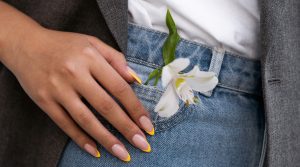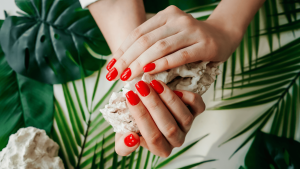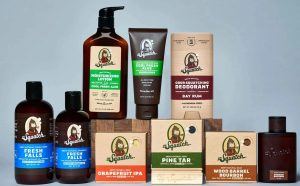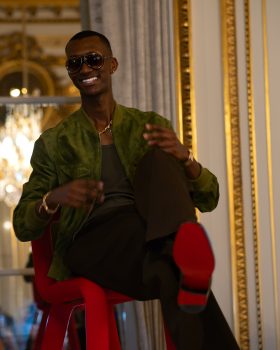Bio-materials, once niche, is now making its way into mainstream fashion. Rose petal fibre, sugarcane, plant-based fibers and synthetic spider silk… these are just some of the natural materials being used to create cruelty-free textiles thanks to an increasing number of conscientious textile and fashion designers. Imagine wearing animal-free leather apparel! No dead animals. No scarred animals. No petrochemicals used to make pleather or vegan leather. That said, animal-free leather has come a long way since the pleather of yesteryears. Lab grown leather or ‘bio leather’— animal-free leather grown in a lab using cells from a skin biopsy—is the rage.
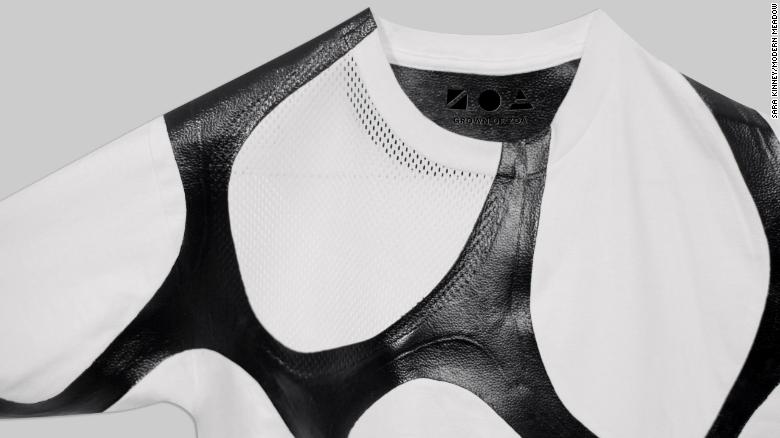
Modern Meadow’s T-shirt using animal free leather
Modern Meadow, which experts in molecular biology, material science, engineering and design, produces animal-free leather. Trademarked as Zoa, the “bio-leather” is created by through a process in which yeast cells are used to create collagen, a protein found in animal skin and a primary component of leather. Once purified, pressed into sheets, and tanned, the vat-grown collagen becomes bioleather. Interestingly, Zoa resembles animal leather more than its synthetic equivalents as it contains collagen, the primary structural component in cow hides. Modern Meadow is now in the process of scaling up production, at which point the material will debut across a wide range of industries.
Per The Atlantic, ‘It’s a radical new way of making leather, reliant on genetic engineering and decoupled from the processes of traditional agriculture. Engineered yeasts have long been used in the production of drugs like insulin, but recently—and perhaps surprisingly given the debate over genetic engineering—they’re entering the world of luxury goods: spider silk, perfume and now leather.’
“The Zoa materials can have different levels of strength and weight [and] take on unique textures and forms,” Modern Meadows co-founder Andras Forgacs told CNN Business. The company isn’t looking to replace traditional leather. Instead, it wants to “create an entirely new material” that doesn’t take away from the planet’s natural resources.
Per CNN Business, ‘Forgacs says Zoa is better than other leather alternatives because these materials are made from collagen, the same “building blocks of nature” that make up traditional leather. Modern Meadow said it is already working with “well-known brands in multiple industries” but declined to identify any of them by name… “Sustainability is on everyone’s minds,” Forgacs said. “We definitely see this as a trend, but not one that is going away.”
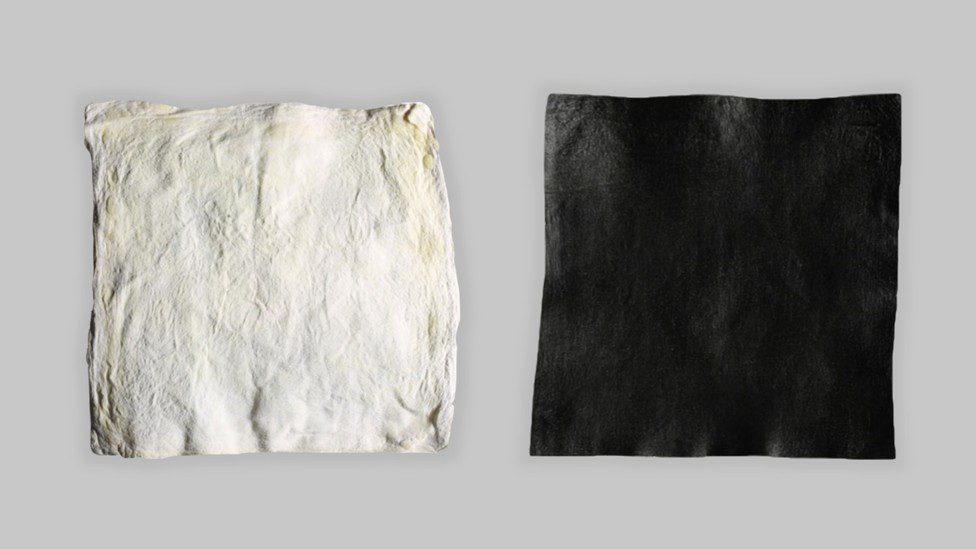
Animal-free leather by Modern Meadows
Per Harpers Bazaar, ‘Other brands are also turning to animal alternatives. Although not vegan, luxury fashion designers such as John Galliano, Prada, Christian Dior, and Louis Vuitton have all sourced fish skin from Atlantic Leather for collections in a bid to lessen the pressure of real leather. Pineapple leather is used by brands including Hugo Boss on a range of shoes, as well as in H&M’s Conscious Exclusive collection — the label also plans to use wine leather in its next Conscious drop…’
Bioleather has several benefits. Imagine a sustainable future where the fashion industry is no longer dependant on animals. Moreover, using skin biopsy instead of the animal to create a textile implies a future where no land is required for livestock grazing. And a future where we no longer need chemicals to tan animal skin is a future where workers are no longer exposed to dangerous toxins. The animal-free leather industry may be emergent and catering to the veg-curious for now, but in a climate where environmental and animal suffering is being scrutinised in the fashion industry, it is time for change.
Read More:
top ranked fashion schools in the world
Jasmeen Dugal is Associate Editor at FashionABC, contributing her insights on fashion, technology, and sustainability. She brings with herself more than two decades of editorial experience, working for national newspapers and luxury magazines in India.
Jasmeen Dugal has worked with exchange4media as a senior writer contributing articles on the country’s advertising and marketing movements, and then with Condenast India as Net Editor where she helmed Vogue India’s official website in terms of design, layout and daily content. Besides this, she is also an entrepreneur running her own luxury portal, Explosivefashion, which highlights the latest in luxury fashion and hospitality.




